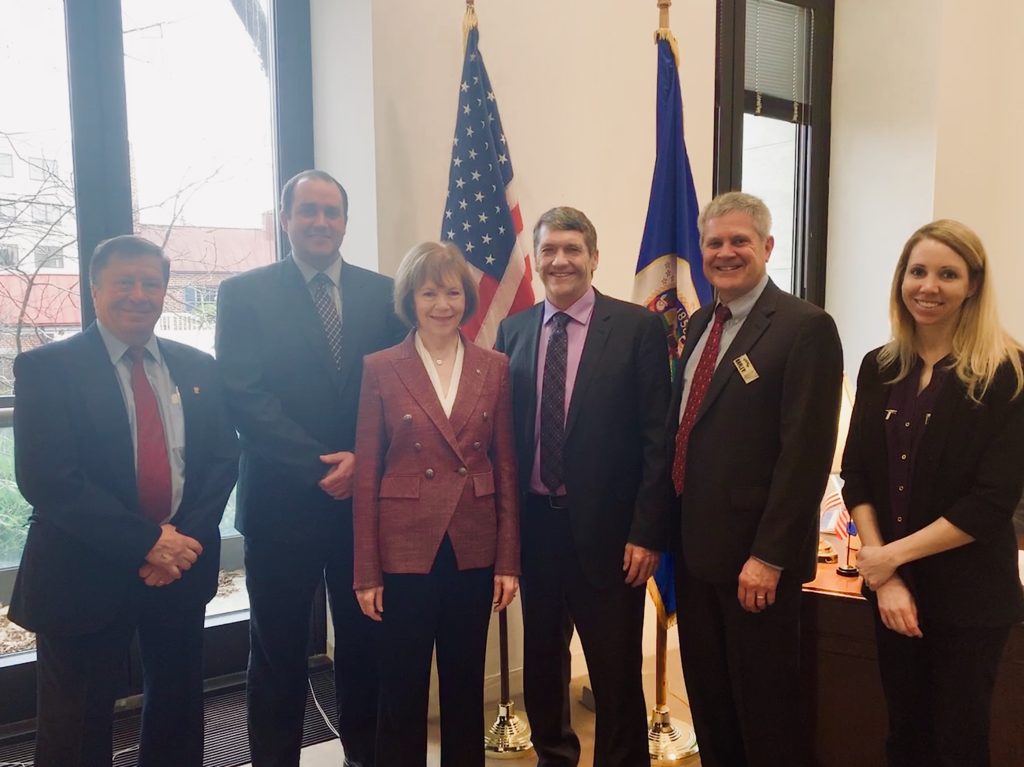Talking barley in our nation’s capital
In early February, I will join many of my fellow barley growers to travel to Washington, D.C. to take part in the annual barley growers’ Hill Climb. It is an opportunity to talk with members of Congress and their staff about the critical role of our nation’s farmers in providing food for our tables and barley for the world’s beer.

I was born in the appropriately named Fertile, Minnesota, and today I am a proud sixth-generation farmer. My dad and I farm about 6,000 acres—including corn, soybeans, and barley.
I grow barley for one of our nation’s most iconic brewers. When it comes to providing barley for our brewers, we first and foremost ensure that the barley is of the highest quality. Growing barley for brewers means the brewers and the grower must work in tandem because the brewers’ success is the farmers’ success. That is why barley growers have supported excise tax relief for all of our nation’s brewers and beer importers. We appreciate Congress voting to extend this relief through 2020, but Congress needs to make this tax relief permanent so brewers and suppliers like barley growers will be better able to plan into the future.

During the barley harvest, I like to get going at around six o’clock in the morning. Mornings allow me to take a deep breath and make sure everything is ready for the day—including ensuring we have enough fuel for the combines. I double-check with my employees what we need to accomplish for the day, as well as making sure we are on track to finish the harvest in time. I spend about 75% of the day during the harvest driving a combine, and if a storm is on the horizon, we can often work until one or two in the morning to make sure we get the crop in on time.
When I talk with my fellow farmers, we want to make sure that future generations want to continue farming the land. The average age of our nation’s farmers is 58 years old. Farmers are passionate about our work, but we also know that our farms are businesses. But as opposed to most companies, we bank our livelihood on rain and topsoil.
That is why the federal government maintaining flexibility in crop insurance programs as well as providing up-to-date and accurate information on barley harvests to barley farmers is essential to making sure that our nation’s farmers can continue to compete in the world’s agricultural market.

Because when I farm, I am not farming for just for people in Minnesota or the United States. I shop the crops on my farm to people around the globe. Farmers like me succeed when we can trade fairly, and as the world becomes more and more integrated, our nation’s farmers will need to have access to consumers across the globe.
As I head to Washington, D.C., I want policymakers to know that more than anything else, I want to leave a sustainable farming legacy that my children will someday continue. In a couple of hundred years, generations that I will never meet will talk about being a 12th generation farmer.
Family farms are our nation’s lifeblood. Behind every meal, from the food on the plates to the beer we use to toast, a farmer’s hands planted, cared for, and harvested the ingredients. We have stories to share, knowledge to pass on and a hope that generations to follow will continue this tradition.













